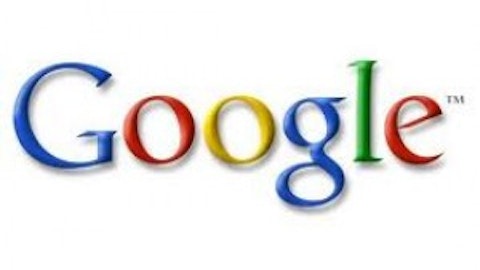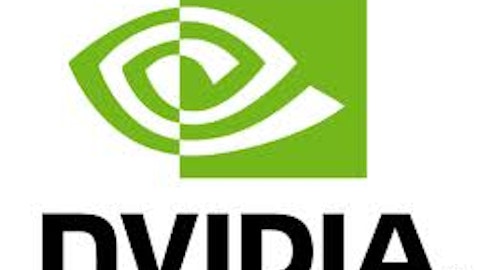Intel Corporation (NASDAQ:INTC) has been struggling to keep pace with other semiconductor rivals in the market, a market which is increasingly becoming mobile. The tech giant, which is a dominant force in the PC industry with its chip making business, has seen a large chunk of the market slip to rivals. The likes of QUALCOMM, Inc. (NASDAQ:QCOM), Samsung Electronics and Texas Instruments, among others have taken full advantage of mobile migration. The tablets and smartphones have largely cannibalized the progress of PC industry, so much so that media pundits are predicting its obsolescence.

Intel has expressed interest in venturing in the lucrative mobile devices industry, which critics fear could yet be another bubble waiting to burst, and hence, shuttering the late entrant’s dreams. But Intel is not letting go of the backbone of its business, the PC industry. Instead, it has invested heavily in Research & Development to try and explore new technological frontiers that could bring the company back to its glory days.
Intel’s strategist and product manager, Barry Solomon, calls it “Perceptual Computing,” A technology hyped to be the turning point of the PC industry. His full description makes it sound like the next big thing in the PC industry.
Barry Solomon
“We’re not trying to replace anything. We’re just trying to augment existing modes of interaction. We’re adding senses to the computer’s brain so it can perceive its surroundings, [identify] who’s interacting with it, and make those interactions more intuitive. We want to go beyond simply delivering technology. The tech world has morphed into delivering experiences.“
So “augmenting” is the word—Intel is trying to gather the interactive capabilities of smartphones, tablets, and recent developments in the PC industry to come up with a complete package. The results would enable the user to apply all the modes of interaction concurrently, or one after the other on a laptop computer.
Technology reviews note that with perceptual computing, Intel envisions a new kind of interface for devices that will let users switch fluently between keyboards, trackpads, touch screens, voice commands, and gestures—or use several modes of interaction at once. The report also notes that perceptual computing is a little different from Microsoft Corporation (NASDAQ:MSFT)’s Kinect. Perceptual computing is comparable to Cloud computing; it is an open-ended vision for what computers should be able to do.
The chip maker is working with Nuance Communications Inc. (NASDAQ:NUAN) for audio capability. Nuance is the brain child behind Apple’s Siri, and the company is working with Creative Technology Ltd. (USA) (ADR) (PINK:CREAF) for the supply of 3D camera at an estimated unit cost of $150, which is supposed to be mounted on a laptop computer for gestural interactions.
Where the Market Stands
Qualcomm is the market leader in the smartphone chip making business, an industry that is rapidly growing year in and year out. The company is delivering new Snapdragon 800 and 600 processors. The Snapdragon 800 processors will produce a higher performance than the Snapdragon S4 Pro processor with exceptionally low power. This could be a winning play for the company as consumers continue to push for efficiency. The company’s profits surged 36 percent for the most recent quarter, and analysts predict continuous growth as consumers shift to the usage of smart devices.
Meanwhile, Apple, which lies on Qualcomm’s supply chain, is looking to diversify its business further by widening its investment in software and services. The company’s device sales are facing declining gross margins as the tablets and smartphones battle hits up. Chinese manufacturers are putting a strain on Apple’s premium priced devices, with Huawei and ZTE cannibalizing the emerging markets. Apple, has seen its business slip drastically, and recently produced a pessimistic guidance on the sales from its Mac unit. Analysts are also skeptical on Apple’s sales growth rate in 2013, a stance reflected in the company’s recent guidance.
Intel’s downside in its PC chip making business is Qualcomm’s advantage in mobile chip making. You could say that the monster that eats on Apple’s PC sales is likewise stepping on Intel’s business. Intel also supplies computer chips to other PC makers like HP, Dell, and Lenovo. However, none of these customers are having a good time with their PC business, hence the necessary measures taken by Intel to come up with new technology that could change all that.
The Bottom Line
Qualcomm’s business in the mobile devices chipsets remains a dominant force in the semiconductor industry. Apple’s iPads, coupled with other tablets from rival firms like Amazon and Microsoft, are threatening to render personal computers obsolete. Intel’s newfound technology would thrust it back into the mix of things. It is no longer enough to say “Intel Inside.” But the interactive interface technology could yet give birth to a new slogan that could go on to dominate the PC industry for ages.
This Silicon Valley giant is definitely set for what could become one of the most intriguing turnaround tech plays in the industry. So far the symptoms of failure are next to null, with a probability of realizing patent royalty revenue in the long-run as rivals join the fight. Intel’s upside is based upon the success of its new technology. Luckily for Intel, it has a ready market that is hungry and willing to get back to business in a more competitive capacity. Lenovo, HP, Apple, and Dell would be looking to redefine their PC business with this technology, so watch out Qualcomm.
The article Perceptual Computing is Intel’s Ace for the PC Business originally appeared on Fool.com and is written by Nicholas Kitonyi.
Copyright © 1995 – 2013 The Motley Fool, LLC. All rights reserved. The Motley Fool has a disclosure policy.





